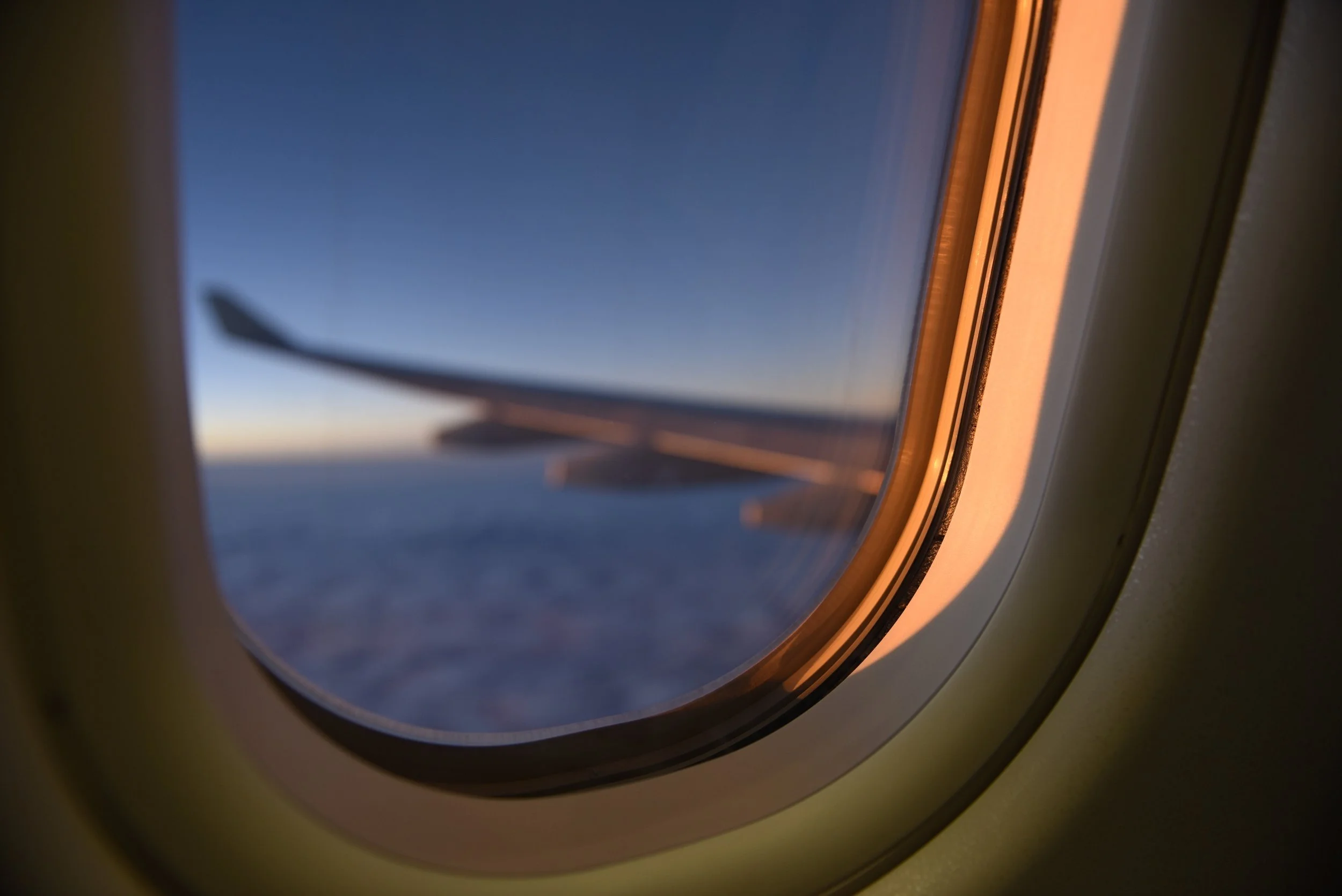To understand acupuncture as a developing form of medicine, let's examine how we handle a fundamentally modern ailment: jetlag. There is no ancient equivalent for having traveled so far so fast as to feel out of time. Yet jetlag responds well to acupuncture treatment. How?
We find success in treatment when our understanding of theory and diagnosis is strong. Thus, a good practitioner does not rely on specific protocols, but on our grasp of medical theory and diagnostic principles to create the best treatment for an individual patient, no matter the ailment(s).
Common jetlag symptoms include insomnia, irritability, inability to focus, and disorientation. Therefore it makes the most sense to assess and balance the channels that pertain to the body's internal and external sense of itself (yin wei and yang wei) and bring the mind and body back to a grounded present by choosing a point along the center line (preferably one that calms shen, the concept of mind or spirit). Sometimes additional grounding by using the points of the yin qiao and yang qiao channels is also helpful. These channels control gait and balance for the inner and outer aspects of the legs (in addition to a myriad of other symptoms and functions).
This is an elegant approach and one that suits most patients. However, there is always room for adaptation and individualization. Perhaps the patient also needs immune support or pain management after their travels. Adding points or using different channels will still work if the practitioner is paying clear attention to the patient's presentation and needs.
In addition to treating jetlag for patients after travel, I have successfully used this method on myself to prevent jetlag by applying vaccaria seeds (wang bu liu xing) to acupuncture points before boarding and continuing to wear them through air travel. I found this worked better than only using an ear acupuncture protocol (including ear shenmen, point zero, insomnia points, and the pineal and endocrine gland points), but I have not yet tried to combine them.
Vaccaria seeds are herbal medicine applied to acupuncture points to gently stimulate the point and extend treatment over a few hours to days. Magnets or other metals are sometimes used instead of the seed, but the key is gentle pressure on the acupoint. Your practitioner will show you how to gently press the seed to stimulate the point intentionally and direct you how often intentional pressure is advised. Seeds may fall off on their own or need to be removed after 3-5 days depending on advice from your practitioner. Side effects are rare, but if the point itches or feels too sensitive with the seed on, simply remove the seed and contact your acupuncturist.
As you can see, it's just a seed on sticky tape like a small bandaid.
Vaccaria seeds can be applied to any point on the body, but because they are commonly applied to one of the hundreds of points on the ear, they are often referred to as earseeds.
Consider acupuncture to decrease or prevent jetlag either before you depart or upon your return. Happy travels!
Many thanks to my teacher Mike Morgan for shaping my initial thoughts on treating jetlag.
ABOUT SHAWNA
Shawna Seth, L.Ac. is a California state licensed and nationally certified acupuncturist currently pursuing physician assistant training. To better understand acupuncture and how you can use it in your daily life, and to explore the connections between Western and Eastern medicine, follow her blog A Cuppa Qi. She also invites connection via email contact@shawnaseth.com or Instagram @acuppaqi.



